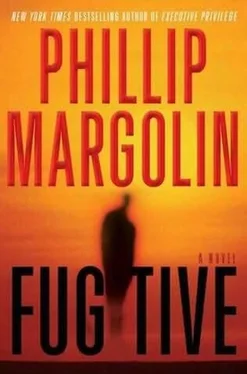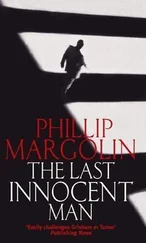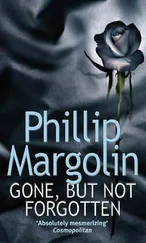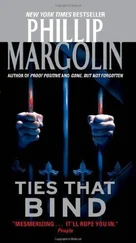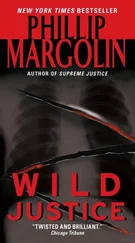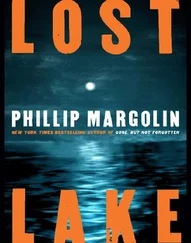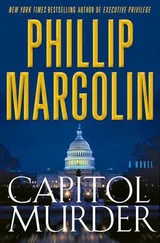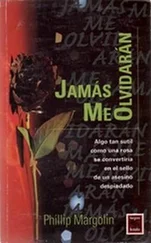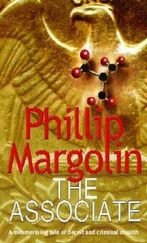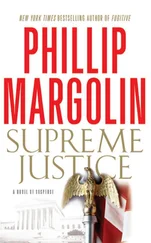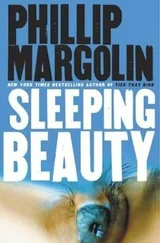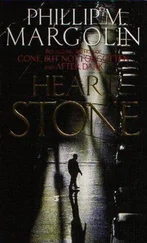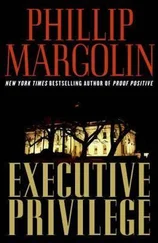“I’m sorry I got you involved in this,” Freddy said when he’d released his friend. “I wasn’t thinking. You could have been killed, but I was just thinking of myself.”
“Hey, man…”
“Don’t say nothing, Charlie. Let me talk. You always think about me, man, but I’m a selfish bastard. It’s time I did something for you. I’m setting everyone free. You’re gonna take them out of here. Tell McDermott I’m gonna surrender and face the music. I fucked up and I gotta pay.”
“That’s great, Freddy. You’re doing the right thing.”
“Yeah, bro, I believe I am. Cut them loose and get your ass out of here.”
Charlie felt lightheaded from his wound but he knew he had to move fast, before Freddy changed his mind. Charlie used the shiv to cut everyone’s bonds. Then he gave it back to Freddy and led the hostages out of the storeroom.
“It’s Charlie Marsh, Mr. McDermott,” he shouted through the library door. “I’ve got the hostages with me. They’re free and unharmed. Don’t shoot, we’re coming out.”
The door opened and the hostages rushed into the corridor. Some were sobbing; others were too exhausted to show emotion.
“Mr. McDermott, Freddy wants to surrender. If you go in now he’ll give up,” Charlie managed. He was feeling dizzy from blood loss and the pain was making it hard to think. Suddenly, Charlie staggered and collapsed to the ground next to Warden Pulliams.
“Get a medic,” the warden told McDermott. “This man was stabbed saving Larry’s life. He’s a hero.”
The captain of the SWAT team sent a medic over to Charlie. Then he and McDermott and several members of the SWAT team entered the library. The point man led them through the stacks until they could see the door to the storeroom. The captain used hand signals to place his men where they would have a clear shot.
“Mr. Clayton, this is Assistant Warden McDermott. We’re grateful that you’ve released the hostages unharmed. Please come out now and we’ll take you into custody. I assure…”
The storeroom door burst open to reveal Crazy Freddy Clayton. He was stripped to the waist and his sculpted body gleamed with sweat. In one hand he held his shiv; in the other he held the soda pop bottle. The bottle was filled with paint thinner. A rag had been stuffed through the neck and into the liquid. Bright flames were eating away at the rag.
“FREEDOM OR DEATH!” howled Freddy as three shots fired simultaneously by members of the SWAT team caught him in the chest.
Freddy staggered a step and the Molotov cocktail exploded, bathing him in flames.
Charlie Marsh had always been a nobody; an insignificant member of the human race who had left no mark on history during his time on Earth. Now he was a hero and, as Warden Pulliams was quick to point out to anyone who would listen, walking proof that the warden’s theories of rehabilitation worked. What better example could there be than Charlie’s willingness to sacrifice his life for that of his jailer?
The warden was wise enough to realize that many convicts would not view Charlie’s actions in a positive light and would consider Freddy Clayton, who had died in flames rather than knuckle under to The Man, as the true hero of the prison standoff. To protect Charlie from those inmates who had not yet turned a moral corner, the warden sent Charlie to the county hospital to recuperate while he arranged for an early release, an appropriate reward for his gallantry.
The first evening Charlie spent on clean sheets in the air-conditioned luxury of his hospital room, the nurse tuned his television to the national news, where the prison standoff was the lead story. It was surreal, watching himself stagger out of the library behind the hostages and collapse to the floor while Mabel Brooks told the world:
“That guard wouldn’t be alive if it wasn’t for Mr. Marsh. None of us would be alive. He threw himself between that knife and Mr. Merritt. And he kept that animal from setting us on fire. I know we’d all be dead if Mr. Marsh hadn’t protected us. God bless him.”
Charlie should have felt proud of his heroic actions and elated by his proximity to freedom, but the primary emotion he experienced was guilt. Was he really a hero? Had he thrown himself between Freddy’s knife and Larry Merritt’s body to save an innocent man or to save himself from being charged as an accessory to murder? And why had he told Freddy he loved him? Had he spoken from the heart or was he trying to distract Freddy to keep himself from being murdered for interfering with his lunatic friend’s insane plan? Charlie had been living the con for so long that it was hard at times for him to divine his own motivations.
Life moved quickly for Charlie. While the parole board considered Warden Pulliams’s recommendation for early release, he waded through offers from literary agents and movie producers. The offers were a surprise, and the fact that he was going to make a huge profit from Freddy’s death increased his guilt. An image of Freddy Clayton in flames seared his brain whenever he thought about the money he was going to make. This image didn’t deter him from hiring an agent or accepting a seven-figure movie deal and another seven-figure book deal for his autobiography, but it kept him from experiencing unfettered joy at his sudden reversal of fortune.
Freddy’s death was the only downer for Charlie in the whirlwind that became his life after prison. Within days of his release he was on Oprah and the Today show, and he learned that Tom Cruise was interested in playing him in the movie. No longer did Charlie sleep in the upper bunk of a prison cell; now he slept on silk sheets in a Manhattan apartment that his publisher let him use while he was working on the book.
Charlie stayed away from drugs, which were offered at the many parties he attended, and he didn’t get drunk, because he liked to keep his wits about him, but he did not stay away from the ladies. Charlie could not believe the variety of women who begged him to take them to bed. There were black women, white women, and Asian women. There were blondes, brunettes, and redheads. There were women who were attracted to celebrities; there were women who wanted to have sex with a rich man; and there were women who were fascinated by dangerous felons, which was how Charlie began portraying himself. No one in his new circle of acquaintances had ever heard of him or Freddy before the prison standoff, so they accepted his new and improved version of Charlie Marsh, the extremely violent felon who had experienced a miraculous conversion.
Mickey Keys, his newly acquired agent, a fast-talking, red-haired, freckle-faced man of forty-two who was frenetically cheerful, had given him the idea when he joked that it would help sell books if Charlie had a more exciting name. As soon as his agent made this comment, Charlie realized that not only was his name as dull as the image a marsh conjured, but so was his life story. His parents had been decent, hardworking folks whose only sin was spoiling their only child. Charlie had turned to crime because he was lazy, and the only violence his escapades ever caused occurred when he was beaten up by a mark who caught on to his scam.
On the other hand, Freddy Clayton’s life resembled a Shakespearean tragedy or a really good soap opera. Freddy had been an abused child. Television talk show hosts loved that dysfunctional-family shit. Freddy had committed murders and armed robberies. He’d had hairbreadth escapes from the law, and violent fights. Few people beside Charlie knew the facts of Freddy’s life-or his, for that matter. Who could contradict him if he took a few incidents from Freddy’s saga and claimed them for his own? Their parents were dead, and so were many of the witnesses to Freddy’s deeds. Oh, there was the odd living acquaintance, but most of those in the know had prison records. Who would take their word over a hero’s, and how many of them had outstanding warrants that would be executed if they stepped forward? Charlie convinced himself that his book would be a homage to Crazy Freddy if he claimed his friend’s life as his own.
Читать дальше
